2025 Ultimate Beginner's Guide to Metal Detecting [FAQ + Guide]
Published by Audrey Floyd on 04/07/25
What to Know When You Start Detecting:
A Comprehensive Guide
- Choosing Your Detector
- Understanding the Technology
- Essential Gear & Accessories
- Getting Started
- Etiquette & Legal Considerations
So, you've decided to start metal detecting—congratulations! Whether you're chasing the thrill of uncovering lost coins, searching for historical relics, or dreaming of striking gold, you're about to embark on one of the most rewarding hobbies out there.
But before you start digging, you need the right detector for the job. With so many models, features, and technical jargon floating around, picking the right one can feel overwhelming. Should you go for a VLF or a PI detector? What's ground balancing? Do you really need a waterproof coil?
This guide will break down everything you need to know to make an informed decision. Let's get started!

FAQ: What You Need to Know Before You Buy
1. What should I look for in a metal detector?
Not all metal detectors are created equal. The best one for you depends on what you want to find, where you'll be detecting, and how much control you want over the settings. Here's a breakdown of the most important features:

Operating Frequency:
- Low frequencies (3-10 kHz) penetrate deeper and are ideal for larger, highly conductive targets like coins and relics.
- High frequencies (30+ kHz) are more sensitive to smaller or less conductive items, such as tiny gold nuggets.
- Multi-frequency detectors (e.g., Minelab Equinox 900) allow you to search across different frequencies simultaneously, giving you the best of both worlds.
Ground Balance:
- If you plan to detect in highly mineralized soil (common in old farm fields, beaches, or gold prospecting areas), ground balance is essential.
- Manual ground balance gives you complete control, but requires some experience.
- Automatic ground balance adjusts for mineralization without requiring user input, making it beginner-friendly.
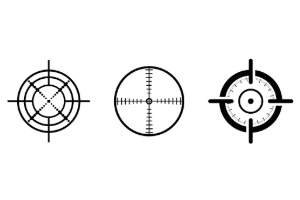
Discrimination & Target ID:
- Discrimination helps filter out junk (like nails and bottle caps), so you spend more time digging valuable finds.
- Target ID provides a numerical readout indicating what type of metal is detected. The scale and numbers vary significantly between detector brands and models, so it's crucial to learn your specific detector's ID system. Generally, iron reads low, aluminum and nickel in the mid-range, and silver and copper at the high end of the scale.
Waterproofing:
- Weatherproof detectors can handle light rain and splashes.
- Fully submersible detectors are ideal for water hunting, whether in lakes, rivers, or the ocean.
Recovery Speed:
- A detector's recovery speed is what truly separates premium machines from basic ones. It determines how quickly the detector can identify and signal targets as you sweep.
- Higher recovery speeds allow the detector to precisely tell you WHEN you're passing over a target, even in areas with multiple objects close together.
- This improved accuracy drastically enhances performance in trashy areas, where a slower machine might miss good targets among the junk or give unclear signals.
- If you'll be hunting in parks, old homesites, or any location with a high density of metal objects, prioritize recovery speed in your selection.
2. Should I start with a beginner-friendly detector or go for something more advanced?
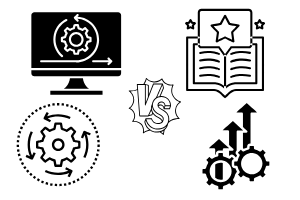
It depends on your learning curve and long-term commitment to the hobby.
- Beginner-friendly detectors (e.g., Nokta Simplex+, Garrett ACE 300) are great for those who want to start detecting with minimal setup. They offer automatic settings, fewer adjustments, and a lower price point.
- Advanced detectors provide more customization, such as manual ground balancing, adjustable frequencies, and fine-tuned discrimination settings. If you're serious about detecting, investing in a mid-range or high-end model might be worth it in the long run.
3. What's the best metal detector for different types of hunting?

Each type of detecting requires different technology and settings. Here's a breakdown:
Coin & Relic Hunting:
- Ideal Features: Good discrimination, moderate frequency (5-15 kHz), deep-seeking capability, clear target ID system, and effective iron discrimination.
- What to Look For: Search for detectors with preset coin-hunting modes, adjustable discrimination patterns, and depth indicators. Models with backlit displays are helpful for low-light conditions in wooded areas where relics are often found.
Gold Prospecting:
- Ideal Features: High-frequency VLF or Pulse Induction (PI), excellent sensitivity to small targets, manual ground balance for mineralized soils.
- What to Look For: Detectors specifically designed for gold hunting offer higher operating frequencies, specialized search coils, and enhanced ground tracking capabilities. Consider the mineralization level of your prospecting location when selecting.

Beach & Water Hunting:
- Ideal Features: Multi-frequency or PI technology, fully waterproof construction, salt mode for wet beach/saltwater environments.
- What to Look For: Fully submersible design (check the exact depth rating), corrosion-resistant materials, and specialized beach/salt modes that can handle the unique challenges of wet sand and saltwater.
4. How much should I spend?
Metal detectors range in price, but here's a general guideline:
- Entry-Level ($200-$500): Good for beginners, typically limited in depth and target separation.
- Examples include Garrett ACE series, Nokta Simplex series, and the Vanquish 540.
- Mid-Range ($600-$1,000): Offers more depth, accuracy, and customizable settings.
- Examples include Minelab X-Terra Elite, Nokta The Legend, and Garrett AT Pro.
- High-End ($1,500+): Designed for experienced users looking for the best sensitivity, depth, and multi-purpose use.
Key Specs & Features to Consider
Understanding Detector Technologies: VLF, PI, and Multi-Frequency
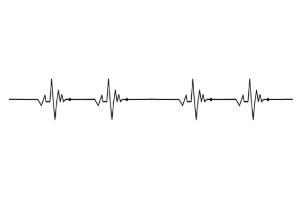
Very Low Frequency (VLF) Detectors
- Most common and affordable type.
- Great for general metal detecting (coins, relics, and even gold).
- Works well in low-to-moderate mineralization.
- Better at discriminating between different metals.
- Typically operates on a single frequency.
Pulse Induction (PI) Detectors
- Ideal for deep targets and highly mineralized ground (e.g., saltwater beaches, goldfields).
- Not as good at discriminating junk targets.
- Generally more expensive than VLF detectors.
- Superior performance in extreme conditions.
Multi-Frequency Detectors
- Sequential Multi-Frequency: These detectors can switch between different frequencies, allowing you to select the optimal one for your current hunting conditions.
- Simultaneous Multi-Frequency (SMF): More advanced detectors can run multiple frequencies at once, giving you the advantages of both low and high frequencies simultaneously—deep detection and good target separation in one package.
- This technology provides the versatility to hunt effectively in various environments without changing equipment.
Coil Size & Type: Does It Matter?
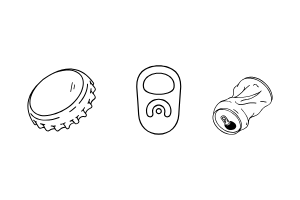
- Coil Size Principles: Generally, the width of your coil correlates with how deep you can detect. Think of it as a relationship between size and sensitivity:
- Larger coils (11"+) create a wider and deeper detection field, making them ideal for covering open areas quickly and finding larger, deeper targets. However, they sacrifice sensitivity to smaller objects and struggle in trash-heavy locations.
- Smaller coils (5"-8") create a more focused, shallow detection field with greater sensitivity to tiny objects. They excel at separating closely-spaced targets in trashy areas like parks and old home sites.
- Coil Configurations:
- Double-D (DD) coils provide better ground coverage and work well in mineralized soil.
- Concentric coils offer better depth and sensitivity in less mineralized soil.
Iron Audio & Notch Discrimination
- Iron Audio allows you to hear the differences between iron and other metals.
- Notch Discrimination lets you filter out specific types of metals (e.g., ignoring pull-tabs while detecting for silver coins).
Essential Accessories for Every Detectorist
Must-Have Tools:
- Pinpointer: A handheld mini-detector that precisely locates targets in the hole, saving time and preventing damage to finds. Consider our detector bundles that include these essential tools.
- Digging Tools: A quality digging tool is essential. Options include:
- Handheld diggers for small targets and precision work
- Full-size shovels with serrated edges for larger or deeper targets
- Finds Pouch: Secure storage for your discoveries while in the field—look for ones with separate compartments for different materials.
- Headphones: Improve target audio and extend battery life. Many of our detector packages include compatible headphones.
Additional Gear:
- Gloves: Protect your hands while digging.
- Carrying Bag: Transport your detector and accessories safely.
- Spare Batteries/Charger: Avoid having your hunt cut short by power issues.
- GPS Device/App: Track your hunting locations.
- Coil Covers: Protect your search coil from damage and extend its lifespan.
Proper Metal Detecting Techniques for Beginners
Proper Swing Technique:
- Keep the coil parallel to the ground, about 1-2 inches above the surface.
- Sweep in a slow, overlapping pattern, covering about 3 feet per second.
- Avoid lifting the coil at the end of each sweep—maintain a consistent height.
Reading Signals Effectively:
- Listen for consistent, repeatable signals.
- Approach potential targets from different angles to confirm.
- Learn your detector's specific tones and what they indicate.
Gridding an Area:
- Mentally divide your search area into manageable sections.
- Search in parallel lines in one direction, then rotate 90 degrees and search again.
- Mark recovered targets to avoid retracing your steps.
Troubleshooting Common Issues
False Signals:
- Problem: Erratic beeping with no target.
- Solution: Reduce sensitivity, properly ground balance, or move away from power lines or buried utilities.
Decreased Depth:
- Problem: Detector not finding targets at normal depths.
- Solution: Check battery levels, ensure correct settings, or try a larger coil.
Unstable Operation:
- Problem: Fluctuating readings and inconsistent performance.
- Solution: Replace batteries, check for loose connections, or reduce EMI (electromagnetic interference) by turning off nearby electronics.
Metal Detecting Etiquette & Legal Considerations
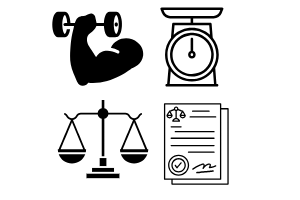
Responsible Detecting:
- Always fill your holes properly—leave no trace.
- Take all trash you dig up with you, even if it's not what you were hoping to find.
- Respect other detectorists' space and avoid "claim-jumping" when others are working an area.
Legal Considerations:
- Public Land: National parks, monuments, and battlefields generally prohibit detecting. State and local parks have varying rules.
- Private Property: Always get written permission before detecting on private land.
- Beaches: Rules vary by location. Check with local authorities before detecting.
- Treasure Laws: Some states have laws governing ownership of found items of significant value or historical importance.
How to Ask for Permission:
- Be professional and courteous when approaching landowners.
- Offer to share interesting finds or split valuable ones.
- Show examples of your previous work, emphasizing how you leave the property undamaged.
- Consider bringing a simple permission form they can sign.
First Hunt Checklist
- [ ] Charged detector batteries
- [ ] Digging tools
- [ ] Pinpointer
- [ ] Finds pouch
- [ ] Headphones
- [ ] Water and snacks
- [ ] Weather-appropriate clothing
- [ ] Permissions secured (if needed)
- [ ] Told someone where you're going
- [ ] First aid kit
- [ ] Bug spray/sunscreen (seasonal)
- [ ] Trash bag for collected junk
Final Tips for Choosing the Right Detector
- Think About Where You'll Be Detecting – Urban parks, farmland, beaches, or gold-rich areas? Your hunting ground determines what features you need.
- Consider Weight & Comfort – Metal detecting requires long hours of swinging, so a lightweight and ergonomic detector will reduce fatigue.
- Learn Your Detector's Signals – Understanding your machine's beeps and numbers is just as important as having the right detector.
- Join a Community – Online forums and local metal detecting clubs are great ways to learn from experienced detectorists.
- Check Local Metal Detecting Laws – Some parks and historical sites prohibit metal detecting. Always check regulations before heading out.
Need More Help?
Choosing your first metal detector doesn't have to be complicated. Our customer service team is here to answer your questions and help you find the best model for your needs!
Happy hunting, and may your next signal be treasure!
